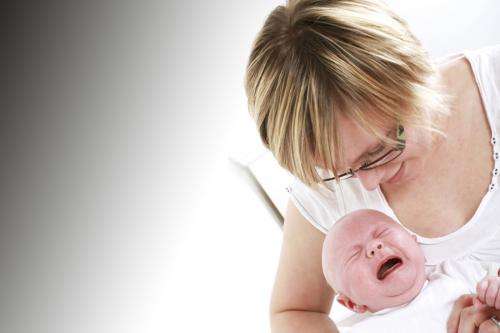Altitude and attitude in the fractious row over crying babies

Aircraft passengers have strong opinions about what to do and whom to blame when a baby or small child starts crying mid-flight but the issue has been largely ignored by airlines, according to research.
Passengers on both sides of the debate about crying babies on aeroplanes believe other people lack tolerance and respect, conclude academics Dr Jennie Small from the University of Technology, Sydney (UTS) and Dr Candice Harris from the Auckland University of Technology in their paper, Crying babies on planes: aeromobility and parenting. The paper has been published in the Annals of Tourism Research.
"Those who complain about children's and parents' behaviour are accused of anti-family sentiment, of being unreasonable and self-centred in not recognising the rights of families and society at large," the researchers find.
"At the same time, they, the parents, are portrayed as self-centred for imposing the discomforts of travel on their children, and their crying babies and unruly children on other passengers."
The academics analysed comments posted by readers on the internet in reaction to media stories about children on planes. They also looked at information provided by airlines.
Dr Small, a senior lecturer in the School of Leisure, Sport and Tourism at UTS, says she has always been interested in issues about air travel and, with Dr Harris, has also examined how airlines and passengers react to obese travellers.
She says changes in the past couple of decades in parenting styles and attitudes to holidays, among other things, appear to have influenced the debate over what is appropriate behaviour on aeroplanes.
"With parents now feeling entitled to do certain things [that earlier generations would not have done], there is an argument that everyone has become less tolerant of everyone else," she says.
"The clear message [from the research] was that people were not critical of the babies; they were critical of the parents and they were critical of the parents who appeared to make no effort to quieten a crying baby."
As one online reader of The Sydney Morning Herald explained in 2011: "It is so frustrating when you have to sit and watch the ineptitude of some of the parents. Some of them just don't have a clue and my heart goes out to the child. It is the parents who need a good slap."
Passengers have suggested solutions such as creating special sections at the back of the plane for families, family-only flights, and better headphones or ear plugs for people sitting near babies and small children.
By contrast, airlines have their heads in the sand, the researchers have concluded.
"Airlines should remember that customer satisfaction/dissatisfaction goes beyond airline food and in-flight entertainment. We call on the airlines to engage in the debate," they write.
"As airlines continue to improve the noise levels of their aircraft, it behoves the airlines to consider ways to lessen passenger noise and make the airline experience more hospitable and stress-free for all concerned, including the baby."
Provided by University of Technology, Sydney



















